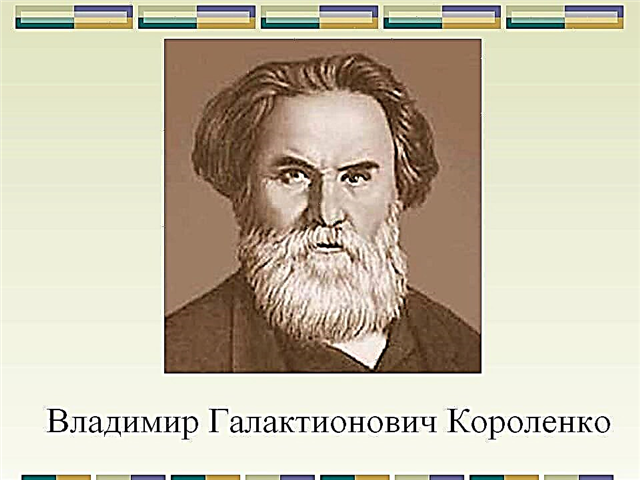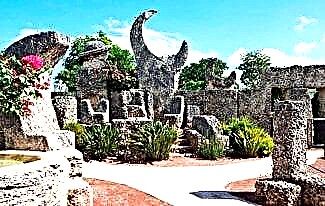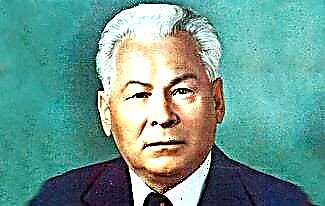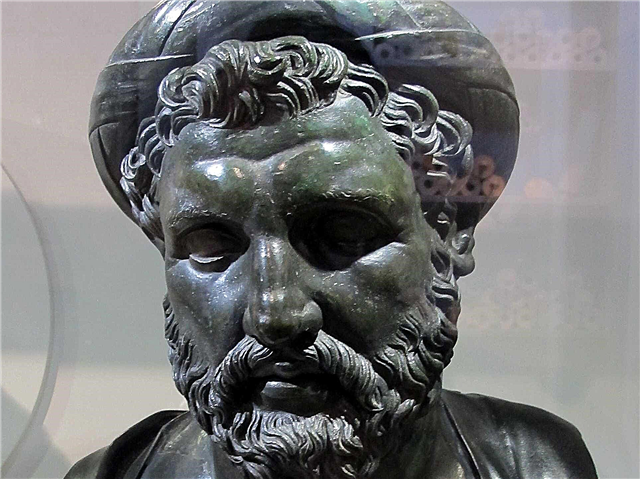Louis XIV de Bourbon, who received at birth the name Louis-Dieudonne, also known as the "Sun King" and Louis the Great (1638-1715) - King of France and Navarre in the period 1643-1715.
A staunch supporter of absolute monarchy who has been in power for over 72 years.

There are many interesting facts in the biography of Louis XIV, which we will tell about in this article.
So, before you is a short biography of Louis 14.
Biography of Louis XIV
Louis 14 was born on September 5, 1638 in the French Saint-Germain palace. He grew up and was raised in the family of King Louis XIII and Queen Anne of Austria.
The boy was the firstborn of his parents in 23 years of their married life. That is why he was named Louis-Dieudonne, which means - "God-given". Later, the royal couple had another son, Philip.
Childhood and youth
The first tragedy in the biography of Louis happened at the age of 5, when his father died. As a result, the boy was proclaimed king, while his mother acted as regent.
Anna of Austria ruled the state in tandem with the notorious Cardinal Mazarin. It was the latter who took power into his own hands, having received direct access to the treasury.

According to some sources, Mazarin was so stingy that there were only 2 dresses in Louis's wardrobe, and even those with patches.
The cardinal stated that this economy was caused by the civil war - the Fronde. In 1649, fleeing from the rioters, the royal family settled in one of the country residences, located 19 km from Paris.
Later, the experienced fear and hardship will awaken in Louis XIV the desire for absolute power and luxury.
After 3 years, the unrest was suppressed, as a result of which Mazarin again took over all the reins of government. After his death in 1661, Louis gathered all the dignitaries and publicly announced that from that day on he would rule independently.
Biographers believe that it was at that moment that the young man uttered the famous phrase: "The state is me." Officials, as, indeed, his mother realized that now they should obey only Louis 14.
The beginning of the reign
Immediately after his lightning-fast ascension to the throne, Louis seriously engaged in self-education, trying to study as deeply as possible all the subtleties of government. He read books and did his best to strengthen his power.
To do this, Louis put professional politicians in high positions, from whom he demanded unquestioning obedience. At the same time, the monarch had a great weakness for luxury, and was also distinguished by pride and narcissism.
Having visited all of his residences, Louis XIV complained that they were too modest. For this reason, in 1662, he ordered to turn the hunting lodge in Versailles into a large palace complex, which would arouse the envy of all European rulers.
An interesting fact is that for the construction of this residence, which lasted about half a century, about 13% of the funds received from the treasury were allocated every year! As a result, the Versailles court began to cause envy and surprise among almost all rulers, which, in fact, was what the French king wanted.

The first 20 years of his reign, Louis 14 lived in the Louvre, after which he settled in the Tuileries. Versailles also became the permanent residence of the monarch in 1682. All courtiers and servants adhered to strict etiquette. It is curious that when the monarch demanded a glass of water or wine, 5 servants participated in the procedure for offering the glass.
From this one can conclude how lavish the breakfasts, lunches and dinners of Louis were. In the evenings, he liked to arrange balls and other merriments at Versailles, which were attended by the entire French elite.
The salons of the palace had their own names, in accordance with which they were furnished with proper furniture. The luxurious Mirror Gallery exceeded 70 meters in length and 10 meters in width. Glittering marble, thousands of candles and floor-to-ceiling mirrors dazzled the interior of the room.
At the court of Louis the Great, writers, cultural and art workers were in favor. Performances were often staged at Versailles, masquerades and many other festivities were held. Only a few rulers of the world could afford such luxury.
Politics
Thanks to intelligence and discernment, Louis XIV was able to select the most suitable candidates for this or that post. For example, through the efforts of the Minister of Finance, Jean-Baptiste Colbert, the treasury of France was enriched every year more and more.
Trade, economy, navy and many other spheres flourished actively. In addition, France has reached great heights in science, significantly ahead of other countries. Under Louis, powerful citadels were erected, which today are under the protection of UNESCO.
The French army was the largest, best manned and led in all of Europe. It is curious that Louis 14 personally appointed the leaders in the provinces, choosing the best candidates.
The leaders were required not only to maintain order, but also, if necessary, to always be ready for war. In turn, the cities were under the supervision of corporations or councils formed from burgomasters.

Under Louis XIV, the Commercial Code (Ordinance) was developed to reduce human migration. All property was confiscated from those French who wished to leave the country. And those citizens who entered the service of foreign shipbuilders were facing a death sentence.
Government posts were sold or inherited. An interesting fact is that officials received their salaries not from the budget, but from taxes. That is, they could only count on a certain percentage of each purchased or sold product. This prompted them to be interested in trade.
In his religious convictions, Louis 14 adhered to the teachings of the Jesuits, which made him an instrument of the most ardent Catholic reaction. This led to the fact that in France any other religious confessions were banned, as a result of which everyone had to profess only Catholicism.
For this reason, the Huguenots - followers of Calvinism, were subjected to terrible persecution. Temples were taken away from them, it was forbidden to hold divine services, and also to bring compatriots into their faith. Moreover, even marriages between Catholics and Protestants were prohibited.
As a result of religious persecution, about 200,000 Protestants fled from the state. During the reign of Louis 14, France successfully waged wars with various countries, thanks to which it was able to increase its territory.
This led to the fact that the European states had to join forces. Thus, Austria, Sweden, Holland and Spain, as well as German principalities, opposed the French. And although initially Louis won victories in battles with the allies, later he began to suffer more and more defeats.
In 1692, the Allies defeated the French fleet in Cherbourg harbor. The peasants were unhappy with the increase in taxes, as Louis the Great needed more and more funds to wage war. An interesting fact is that many silver items from Versailles were even melted down to replenish the treasury.
Later, the king called the enemies for a truce, agreeing to make concessions. In particular, he reclaimed some of the conquered lands, including Luxembourg and Catalonia.
Perhaps the most grueling war was the War of the Spanish Succession in 1701. Against Louis, Britain, Austria and Holland. After 6 years, the allies crossed the Alps and attacked the possessions of Louis.
To protect himself from opponents, the king needed serious means, which were not available. As a result, he ordered to melt all the gold utensils of Versailles, to acquire various weapons. The once prosperous France is mired in poverty.
People could not provide themselves with even the most necessary. However, after a protracted conflict, the forces of the allies dried up, and in 1713 the French concluded the Utrecht Peace with the British, and a year later with the Austrians.
Personal life
When Louis XIV was 20 years old, he fell in love with Maria Mancini, the niece of Cardinal Mazarin. But due to political intricacies, his mother and cardinal forced him to marry the Infanta Maria Theresa. This marriage was needed in order for France to conclude a truce with the Spaniards.
It is curious that the unloved wife was Louis's cousin. Since the future king did not love his wife, he had many mistresses and favorites. And yet, in this marriage, the couple had six children, five of whom died in early childhood.

In 1684, Louis 14 had a favorite, and later a morganatic wife, Françoise d'Aubigne. At the same time, he had a relationship with Louise de La Baume Le Blanc, who bore him 4 children, two of whom died in childhood.
Then the monarch became interested in the Marquise de Montespan, who turned out to be his new favorite. The result of their relationship was the birth of 7 children. Three of them never managed to survive to adulthood.
In subsequent years, Louis 14 had another mistress - the Duchess of Fontanges. In 1679, a woman gave birth to a stillborn baby. Then the king showed up another illegitimate daughter from Claude de Ven, who was named Louise. However, the girl died a couple of years after birth.
Death
Until the end of his days, the monarch was interested in state affairs and demanded respect for etiquette. Louis XIV died on September 1, 1715 at the age of 76. He died after several days of agony from gangrene of the leg. An interesting fact is that he considered the amputation of a sore leg unacceptable for royal dignity.
Photo Louis 14



















